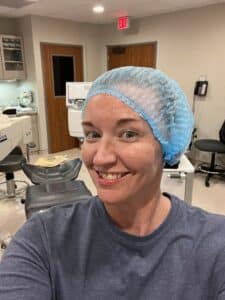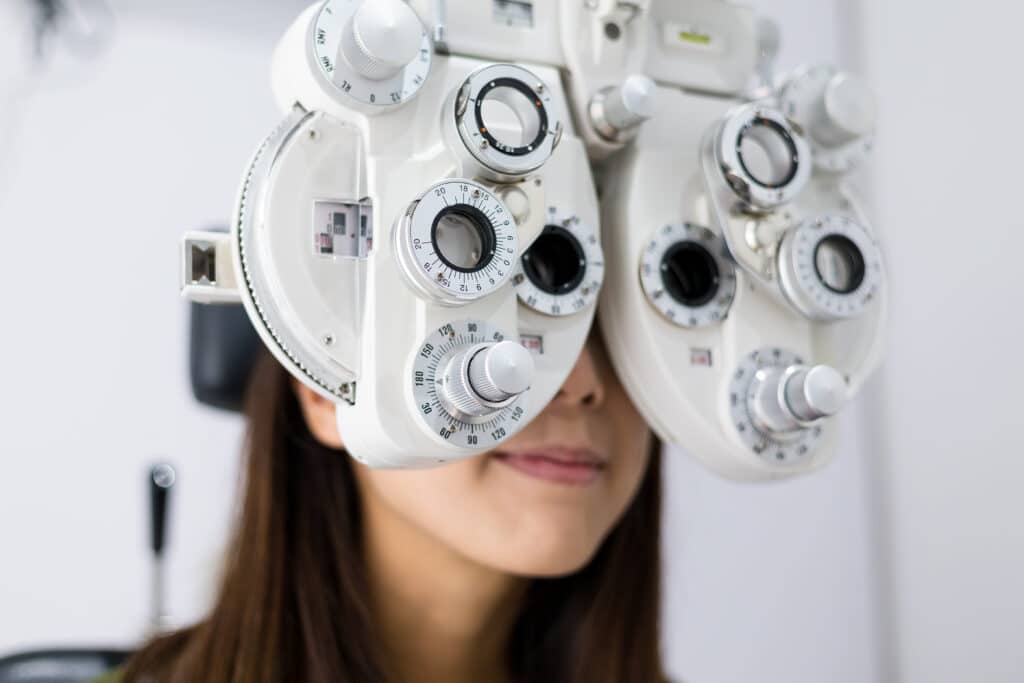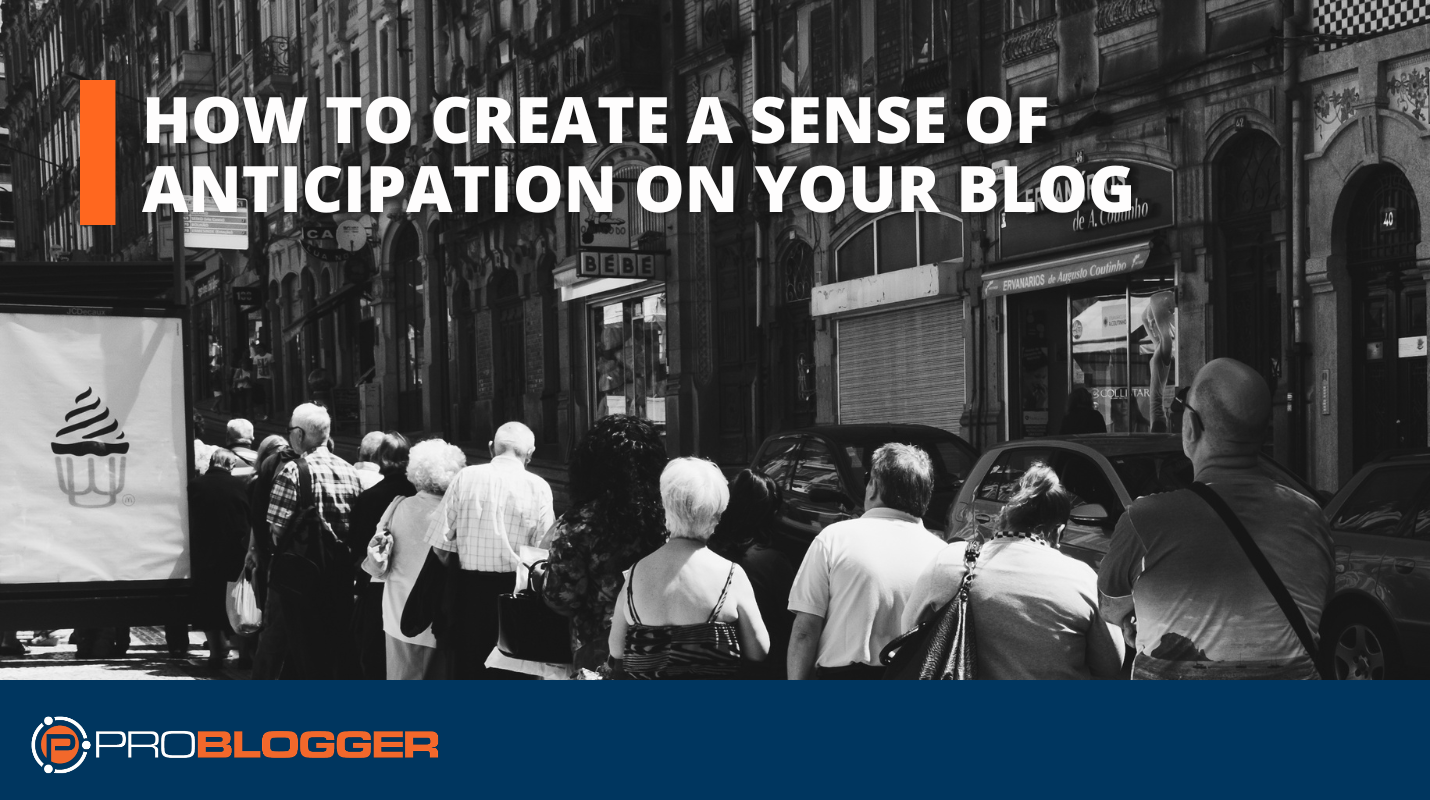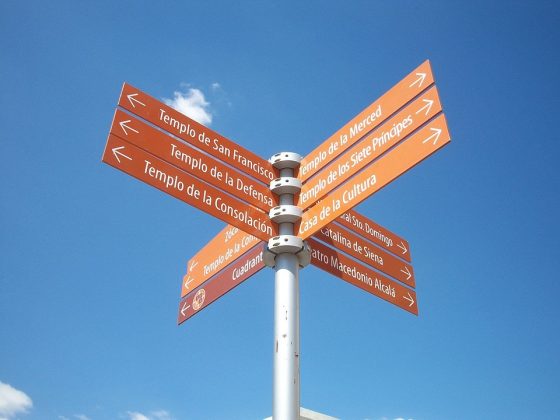This post may contain affiliate links. Click here to read my full disclosure.
I had my eyes corrected with lasik eye surgery in 2022, and I still maintain that it was one of the best decisions I’ve ever made in my life. If you’re considering lasik surgery, you probably have several thoughts and emotions swirling –
“Is it safe?” “Does lasik permanently fix eyes?” “Is lasik surgery worth the risk?” “Does lasik fix eyesight permanently?” “Is it painful?” and so many other questions. I’m going to share my experience and answer all of your burning questions about lasik eye surgery.
Lasik Eye Surgery Procedure
First thing’s first: What can you expect going into your lasik surgery? There are two types of lasik eye surgery that my surgeon offers:
Standard Lasik Surgery
Standard lasik eye surgery is the old school method of vision correction, using a blade called a microkeratome to make the incision. The blade is used to create a partial-thickness corneal flap and laser to correct your vision. The flap is placed back on top of your cornea, and the process is repeated on the other eye.
I chose standard lasik surgery, so I will be sharing my experience with this particular method as I have no experience with bladeless lasik surgery.
Bladeless Lasik Eye Surgery
Bladeless lasik involves an individual laser called a femtosecond laser is used to create the flap of the cornea instead of a blade. Because a single laser is used instead of a blade to create the flap it can shorten healing time.
The cost of bladeless lasik eye surgery was higher than standard, so that is why I didn’t choose bladeless.
Did it scare me a bit, going under the knife? Yes. Was it worth the anxiety? No way.
Lasik Eye Surgery Candidate Requirements
A good candidate for LASIK eye surgery typically has the following characteristics:
- They are at least 18 years old
- They have a stable eye prescription for at least one year
- They have good overall eye health, with no existing conditions such as cataracts or glaucoma
- They have a moderate to high degree of nearsightedness, farsightedness, or astigmatism
- They have realistic expectations for the outcome of the surgery
- They are in good general health and do not have any medical conditions that may affect the healing process.
Preparing for Lasik Surgery
There are a few things you can do to prepare for LASIK eye surgery:
- If you’re a contact lens wearer, stop wearing your contacts when your doctor tells you to. You need to give your eyes plenty of oxygen and “breathing room” prior to the surgery. I wore my contacts 24/7, only changing them out once every other month and would leave them out just for one night’s sleep. I don’t recommend this, by the way. I was what doctors referred to as a “contact lens abuser”.
- Avoid certain medications: Certain medications, such as anti-inflammatory drugs and blood thinners, can increase the risk of complications during LASIK. Be sure to discuss any medications you are taking with your surgeon.
- Arrange for transportation: Since you will not be able to drive yourself home after the procedure, it’s important to arrange for a friend or family member to take you home.
- Follow instructions: Follow all the instructions given by the surgeon, both before and after the surgery.
- Regarding #4 ^, don’t wear eye makeup for at least two weeks post-surgery. As I mentioned, when I had my lasik eye surgery I worked at a bank, and I was client-facing. It was tough going to work with no make up on my face. But it was a sacrifice I was willing to make for the future of my eyesight.
What to Expect the Day of Lasik Surgery

I arrived at the eye doctor knowing that this is an outpatient procedure. Upon arrival, the front desk offers a valium to calm your nerves. The doctor warned me to wait a bit to take it in case they were backed up with patients and there was a delay.
I only had to wait about five minutes before being escorted to the back. They checked my vision and brought me to a reclining bed. I took my valium at this time. My husband wasn’t able to go back with me for the surgery, and I was a ball of nerves!
The nurses and doctors were great at explaining everything that was going to happen before it happened and while they were working, they checked on me constantly.
The nurse administered numbing eye drops that felt similar to those dilation drops you receive at the eye doctor but even weirder.
Shortly after, we were ready to go. The doctor covered one eye with tape while working on the other eye so that I couldn’t see what was going on. This is probably for everyone’s safety because I would have freaked out if I’d have been able to see what was going on.
They put a tool on my eyelids to keep them open, one at a time. I felt pressure but not pain during the lasik eye surgery. The flap was created on my cornea, and I felt a weird scraping on my eyeball. It reminded me of the dentist performing a cleaning with his plaque scraper. Very strange.
The flap was then returned, and they moved on to the other eye.
The other eye felt very strange to me because when they removed the flap with the bladed tool, I felt a weird pop. I was terrified, but I trusted my doctor. I did have bloodshot eyes for a few weeks post-surgery, and I was assured this was completely normal.
Immediately after my lasik surgery, I was told to go to bed and sleep the rest of the day. My surgery was scheduled for 2 pm, I believe, and I slept until around 8 or 9 pm. At that point, I took off my face mask and was able to watch tv from across the room. It was still slightly blurry, but I could see better than before I went into surgery!

How Long Does Lasik Take?
The surgery was complete within five minutes, and at this point, I was high as a kite. The valium had kicked in, and I also had a strange adrenaline rush going on. I spent about 30 minutes in the operating room, so it was a very quick procedure.
Side Effects of Lasik Eye Surgery
There are several potential side effects of LASIK eye surgery, including:
- Dry eyes: LASIK can cause temporary dryness in the eyes, which may last for several weeks or months. This eye drop was a lifesaver for me for several months after my surgery.
- Glare and halos: Some people may experience glare or halos around lights at night, particularly when driving.
- Night vision problems: Some people may have difficulty seeing at night, particularly in low-light conditions. This is why I chose the HD version of lasik surgery. I haven’t had nearly as many issues driving at night as I did before I had lasik surgery.
- Fluctuating vision: Some people may experience fluctuations in their vision, particularly during the first few weeks after the surgery.
- Under-correction or over-correction: In some cases, the LASIK surgery may not fully correct your vision or may over-correct your vision, resulting in the need for further treatment.
- Epithelial Ingrowth: LASIK surgery involves cutting a flap in the cornea, and in some cases, cells from the surface of the eye can grow underneath the flap. This can cause visual disturbances and may require additional surgery to correct. This one made me nervous because at my first post-op appointment, the eye doctor told me that there was a little

Immediately after lasik eye surgery - bit of growth underneath my flap that we needed to keep an eye on. It resolved itself by the next appointment thankfully.
- Infection: infection is a rare but serious side effect of LASIK.
- Inflammation : Inflammation in the eye is another side effect, but it is usually mild and short-lived.
It’s important to note that the most of these side effects are temporary and most people recover fully after LASIK surgery. However, it’s important to understand the potential risks and benefits of LASIK before deciding to undergo the procedure and discuss any concerns with your surgeon.
What’s That Burning Smell During Lasik Surgery?
I wasn’t prepared for the burning smell in the middle of my lasik eye surgery. I even asked “What’s that smell?” to which the doctor replied that it’s the odor of vaporized tissue on the cornea and totally normal. I wish I had known about that going in, so I’m forewarning you. Be prepared to smell burning flesh.
At this point, I was questioning my decision to have lasik surgery, but it was too late. No going back. I was escorted to the hallway where my husband met me to walk me out to the car. I had these cool plastic protectors over my eyes, and we had purchased a cushioned sleep mask to block out the sun because my eyes were super sensitive. This was the absolute best decision ever! The sun was incredibly bright (it really wasn’t – it was overcast in NOLA that day).
Searching for Lasik Eye Surgery Near Me
I started in my local Facebook groups, asking for recommendations from others in my area who’ve had lasik surgery. I wanted the good, the bad, and the ugly. Several recommended a local doctor in the Florida panhandle but as I looked at his prices, I found that it could cost upwards of $5000-$6000 total ($3,000 per eye).
Singer Haley Vision Center
At the time, I was still working at the bank earning less than $50,000 per year, and we were on a tight budget. A few women recommended Dr. Singer, of Singer Haley Vision Center, in the greater New Orleans area. This doctor has partnered with a local opthamologist so that I could go to my pre-op and post-op visits in Pensacola and only travel to Metarie (outside of NOLA) once for the surgery. Because this is a 3.5 hour drive, we opted to drive over the day of the surgery and stay in a hotel that night, coming home the next day.
Lasik Eye Surgery Cost
I already mentioned that lasik surgery can cost up to $6,000 – something I couldn’t afford at the time. Dr. Singer advertised $799/eye, and because I had heard great things from a few women, I was willing to learn more.
I found that my eyes needed the HD surgery, which offers better vision at night. I have a light sensitivity and a slight astigmatism, so this cost a total of $1199/eye.
This is the lasik eye surgery cost without insurance as a cash pay patient because this doctor doesn’t file insurance claims. He cuts out the insurance companies, which I personally am a huge fan of.
Is Lasik Covered by Insurance?
Lasik typically isn’t covered by insurance as it’s considered an elective procedure. It reduces the amount of visits to the eye doctor, removing the need for glasses and contacts for nearsighted patients.
Always check with your insurance company to be sure, though. You never know if you don’t ask.
Will I Need Reading Glasses After Lasik?
The short answer, probably. This has nothing to do with the lasik surgery effectiveness but more to do with your eyes losing their ability to focus on close objects. This usually happens between the ages of 40 and 50, so no…your lasik doesn’t “wear off” over time.
Computer Screen and Blurry Vision After Lasik

One thing I noticed the morning after surgery was that I wasn’t able to see up close very clearly. I experienced blurry vision and was unable to read my phone or a computer up close for a day or so. At first I wondered if I had made a mistake, but within a few weeks my vision had improved significantly. By my second checkup post-op my vision was 20/20!
After surgery, I had to keep these eye drops handy at all times. I was given explicit instructions not to use any eye drops that promise to “get the red out”. Refresh eye drops helped significantly with my dryness for months post-surgery.
I also noticed that the more I rewet my eyes with the drops, the less blurry they were.
Lasik Eye Surgery Risks
The risks of LASIK surgery include:
- Dry eyes: LASIK can cause dry eyes, which can be temporary or permanent.
- Vision loss or changes: In rare cases, LASIK can cause vision loss or changes, such as double vision or halos around lights.
- Undercorrections or overcorrections: LASIK can result in undercorrections or overcorrections, which may require additional surgery to correct.
- Flap complications: The flap created during LASIK can become dislodged or infected, which can lead to vision loss.
- Glare and halos: Some patients may experience glare and halos around lights after LASIK.
- Regression: The correction achieved by LASIK may not be permanent and the patient’s eyesight may gradually return to its pre-surgery state.
It’s important to consult with a qualified ophthalmologist who can help you understand the risks and benefits of LASIK surgery, and determine if it’s the right choice for you.
Who Should Not Have Laser Eye Surgery
Some individuals who may not be good candidates for LASIK eye surgery include:
- Individuals with certain medical conditions, such as autoimmune disorders or uncontrolled diabetes
- Individuals with thin corneas or other structural abnormalities of the eye
- Individuals with severe dry eyes
- Individuals with large pupils
- Individuals with a high degree of nearsightedness, farsightedness, or astigmatism
- Individuals who have had previous eye surgery
- Individuals who have a history of certain eye diseases or disorders, such as keratoconus or glaucoma
- Individuals who are pregnant or nursing
- Individuals who have a high expectation for perfection
Lasik Eye Surgery Age
The typical age range for LASIK eye surgery is between 18 and 40 years old. This is because the prescription of the eye is considered to be stable in this age range and the risk of any age-related eye diseases is low. However, it’s not uncommon for people older than 40 to have LASIK as well.
It’s important to note that the best age for LASIK eye surgery may vary depending on the individual’s eye health and vision stability. A qualified eye surgeon will be able to determine if LASIK is a suitable option for you based on your specific circumstances.
It’s also important to note that LASIK is only approved for people over the age of 18, as the eyes are still developing before that age and it’s not recommended to do any kind of refractive surgery before the eyes fully developed.
How to Pay for Lasik Eye Surgery
Lasik surgery isn’t exactly cheap. It’s one of the best investments you can make for your own self care. I am not a fan of debt, so credit cards aside, here’s how I would recommend saving $2400 to pay for your own lasik eye surgery:
- Cut back on subscriptions – Savings $100/month
- Sell items you no longer need, such as extra furniture, clothes, electronics, even old fishing gear or boats you have lying around (that you’re no longer using). Earnings – $500 total
- Shop around for better car insurance rates – Savings $100/month
- Start Budgeting your Money Better – Create a budget and stick to it. Count every dollar earned and every expense spent. Save everything extra that you can – Savings $200/month (This will vary significantly).
- Stop Eating Out – Create a meal plan and don’t eat fast food or restaurants outside of the home until your goal is met. I bet if you printed a bank statement and added how much you spend at restaurants, you’d be shocked! We all are guilty of this – Savings $200/month
- Start a side hustle – In a world full of technology and tools to sell your goods and services, it’s the perfect time to start a side hustle. One of the best decisions I ever made was to start a blog as it has earned me up to $4000/month of passive income. In the early days, it was not passive at all, but over the past year I’ve barely touched it, and I’ve earned a consistent $800-$1000 every single month. Know your skills and worth and market them!
If you worked on a combination of the above six money-saving strategies, you would likely be able to pay for lasik eye surgery within a few months. Sacrifices would have to be made, but for me…it was worth it.

Life is a collection of memories and experiences. There are ups and downs. I am so grateful for God’s grace and am on the journey to a renewed spirit, free of perfectionism. Perfection Hangover offers the sober truth – no filter.
Source link










